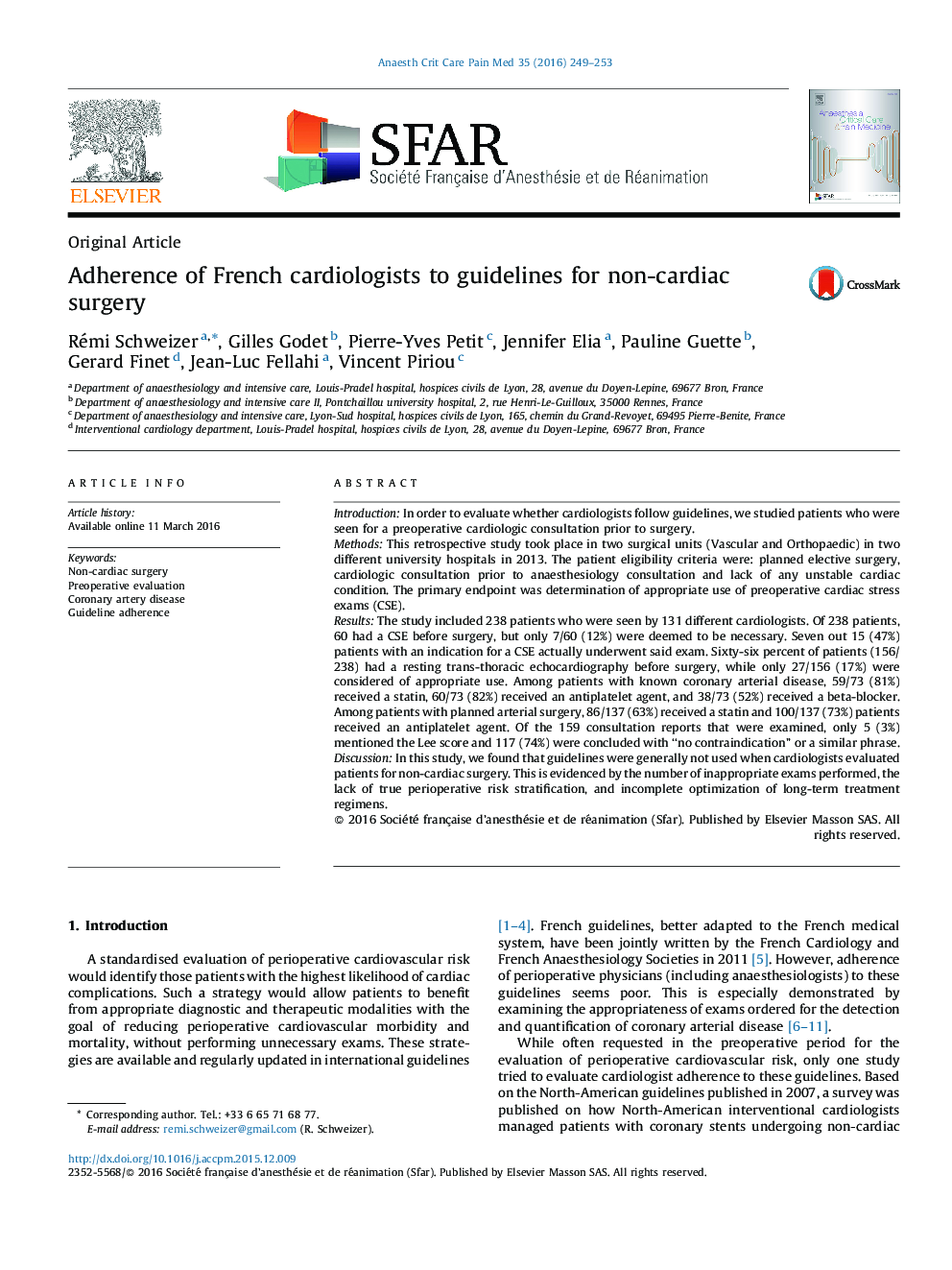| Article ID | Journal | Published Year | Pages | File Type |
|---|---|---|---|---|
| 2741862 | Anaesthesia Critical Care & Pain Medicine | 2016 | 5 Pages |
IntroductionIn order to evaluate whether cardiologists follow guidelines, we studied patients who were seen for a preoperative cardiologic consultation prior to surgery.MethodsThis retrospective study took place in two surgical units (Vascular and Orthopaedic) in two different university hospitals in 2013. The patient eligibility criteria were: planned elective surgery, cardiologic consultation prior to anaesthesiology consultation and lack of any unstable cardiac condition. The primary endpoint was determination of appropriate use of preoperative cardiac stress exams (CSE).ResultsThe study included 238 patients who were seen by 131 different cardiologists. Of 238 patients, 60 had a CSE before surgery, but only 7/60 (12%) were deemed to be necessary. Seven out 15 (47%) patients with an indication for a CSE actually underwent said exam. Sixty-six percent of patients (156/238) had a resting trans-thoracic echocardiography before surgery, while only 27/156 (17%) were considered of appropriate use. Among patients with known coronary arterial disease, 59/73 (81%) received a statin, 60/73 (82%) received an antiplatelet agent, and 38/73 (52%) received a beta-blocker. Among patients with planned arterial surgery, 86/137 (63%) received a statin and 100/137 (73%) patients received an antiplatelet agent. Of the 159 consultation reports that were examined, only 5 (3%) mentioned the Lee score and 117 (74%) were concluded with “no contraindication” or a similar phrase.DiscussionIn this study, we found that guidelines were generally not used when cardiologists evaluated patients for non-cardiac surgery. This is evidenced by the number of inappropriate exams performed, the lack of true perioperative risk stratification, and incomplete optimization of long-term treatment regimens.
